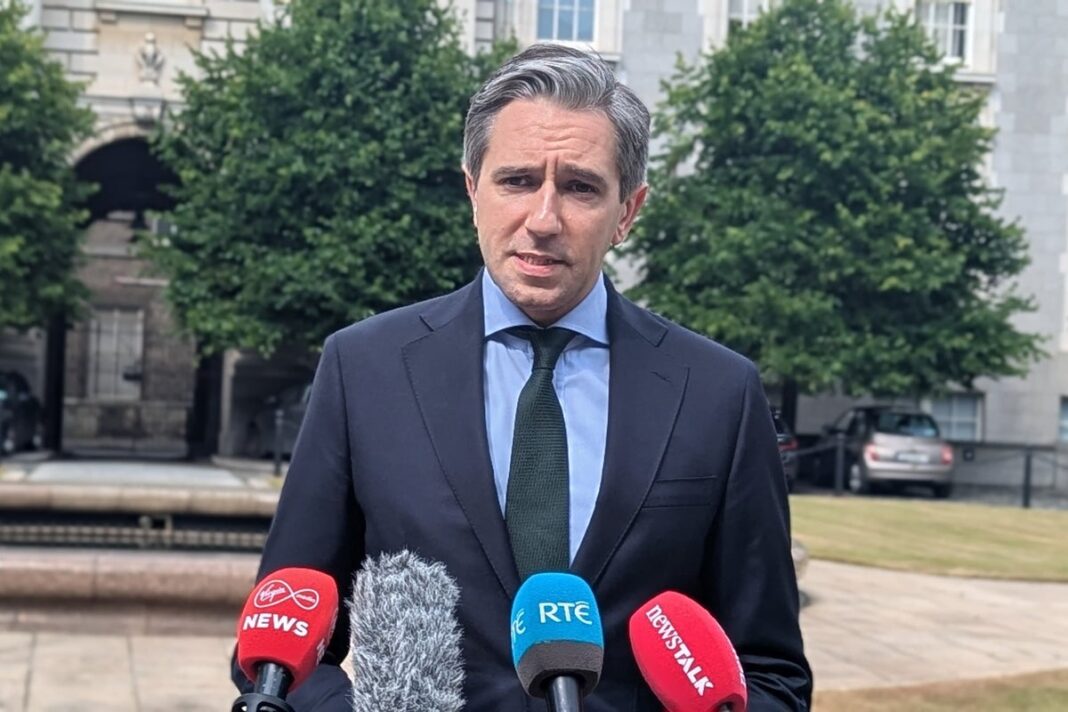A US tariff of 30% would “stop trade as we know it” with the EU, Ireland’s foreign affairs minister has said.
Simon Harris was echoing comments from the EU Trade Commissioner Maros Sefcovic who said on Monday that such a tariff would effectively “prohibit” trans-Atlantic trade.
US President Donald Trump indicated at the weekend that the EU would face a 30% tariff from August 1 if a deal is not struck.
The Irish drinks industry has described it as a “nightmare” scenario and concern has also been expressed on the effect such tariffs could have on US pharma multinationals based in Ireland.
Simon Harris, who is also Ireland’s deputy premier, said Mr Sefcovic was sharing a “grim message” but it was “important to be truthful”.
The Tanaiste said a 30% tariff would be “extraordinary” and urged businesses to prepare for all scenarios, but added that a negotiated agreement was still possible.
“He (Mr Trump) knows as a businessman that tariffs at that level would not just disrupt trade, it would in many ways stop trade as we know it functioning between Europe and the US,” he told Newstalk radio.
“So I do still believe there is a landing zone here for a deal, there is a landing zone for an agreement.”
He said that Mr Trump had previously threatened tariffs that did not come into effect. In May, Mr Trump said he was recommending that a 50% tariff rate come into effect on June 1.
He added: “This is a time of huge volatility but, let me be clear, there is a way forward.
“I know from the conversations I’ve been having with colleagues, I know from my meetings with the US administration there is a deal here to be done, there is a landing zone, the question is if and when the US is up for it.”
Mr Harris met the US ambassador to Ireland, Ed Walsh, on Monday, and is to meet Irish-based US pharmaceutical multinationals online on Wednesday.
Ireland has consistently called for zero-for-zero tariffs in as many areas as possible, with particular concern about Irish beef, dairy and alcohol exports.
The Irish government has also expressed concern at how tariffs could affect pharma multinationals based in Ireland.
The US has previously signalled that it intends to target the pharmaceutical industry, which employs about 45,000 people in Ireland.
Opposition parties raised concerns that the economic uncertainty would hit families struggling due to the cost of living in October’s budget.
Labour TD George Lawlor said it was a “ridiculous situation” that Mr Trump prompts an “almost weekly change in direction” on trade.
He said the uncertainty was creating “unease” for businesses based in Ireland that export to the US.
Labour TD Marie Sherlock said the economic uncertainty caused by the threat of tariffs meant families were facing a “nightmare” scenario in relation to the budget.
She said it looked as though “pre-election sweeteners”, such as a drop in student administrative fees and energy credits, would be withdrawn.



